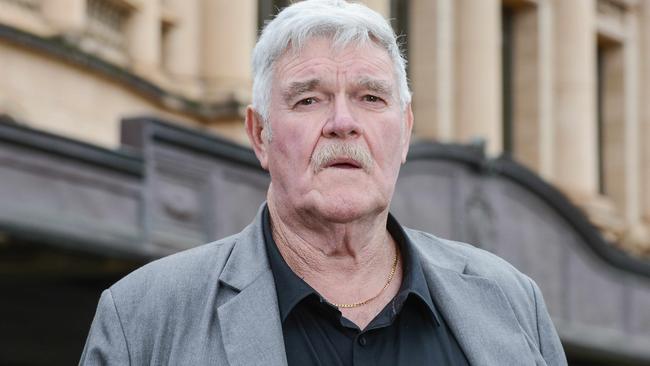‘Joanne’s Law’ comes into effect allowing victims of crime to read unedited impact statements in court
After more than a decade of advocacy, victims of crime will no longer be censored as new laws come into effect Tuesday.
Police & Courts
Don't miss out on the headlines from Police & Courts. Followed categories will be added to My News.
After Ron Lillecrapp’s sister Joanne was murdered in 2003, he wanted to tell the courtroom how the crime had altered his life forever.
But when the time came to read a victim impact statement in court at her killer’s’s parole hearing, his words were altered not once, not twice, but as many as three times.
Mr Lillecrapp was told he could not refer to his sister’s killer as “a lower than life monster”, “scum”, a “destroyer” or “greedy”.
Now, after more than a decade of advocacy by The Advertiser, families of victims will be able to read their unedited – no matter how “irrelevant or inflammatory” their words are.
As of April 1, new laws – known as ‘Joanne’s Law’ – will come into effect, meaning courts will be required to adjourn sentencing proceedings to give victims a reasonable opportunity to prepare their victim impact statements.


The laws also mean victims must be informed about their rights to provide statements, how a court can take it into account during sentencing, and most importantly, remove limitations on what they can say.
South Australian Courts, as of Tuesday, will be unable to refuse a statement on the grounds it contains “irrelevant or inflammatory material”, and will instead maintain discretion to determine exactly which parts of the statement should be taken into account during the sentencing process.
Attorney-General Kyam Maher said although victims of crime may never fully heal from their trauma – “victim impact statements are an important part of the criminal justice process and victims deserve to have their voices heard”.
“I want to pay tribute to the advocacy of Ron Lillecrapp, the former Commissioner for Victims’ Rights, Bronwyn Killmier and her successor Sarah Quick, who have advocated for this important reform,” he said




